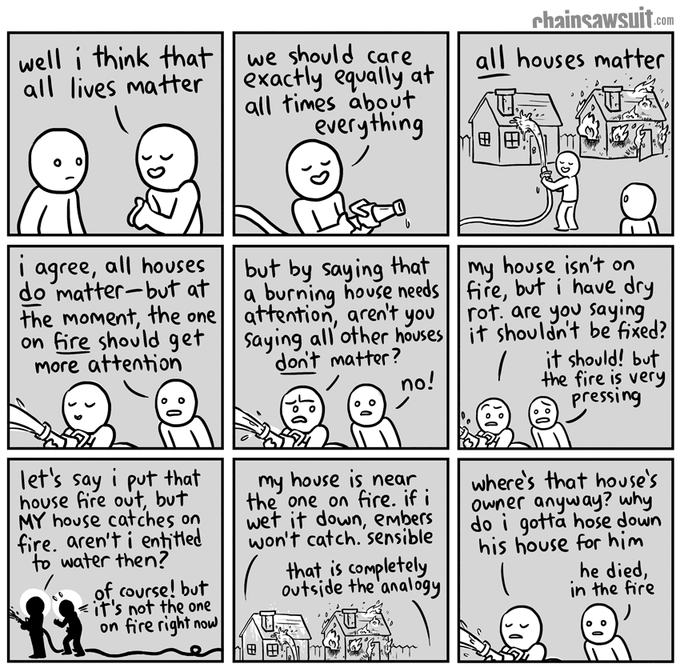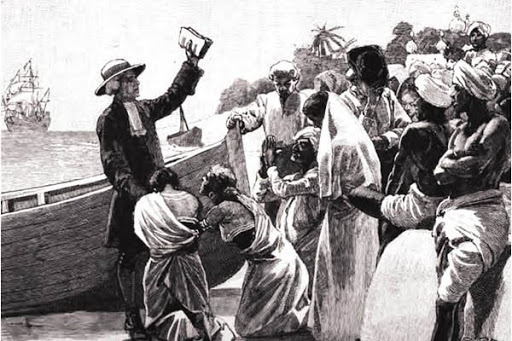


 |
| The argument that colonisation provided civilizing benefits to the world is often used as a justification or excuse for the brutality of Empire. This philosophy still permeates much thought in the 21st century. |




 |
| The argument that colonisation provided civilizing benefits to the world is often used as a justification or excuse for the brutality of Empire. This philosophy still permeates much thought in the 21st century. |

Research and development focus
Caroline Dweck developed Growth Mindset Theory in the early 2010's. The theory suggests we have two general mindsets - fixed and growth.
A fixed mindset is when we hold concrete beliefs about our ability in a given area - particularly that we are unable to improve that ability. Although this may sound undesirable a fixed mindset can be very useful. For example having a fixed mindset in our ability to fly, believing we are incapable and never able to improve, ensures we don't go jumping off cliffs! The problem occurs when we hold fixed mindsets in areas where we are capable of improving such as our intelligence or knowledge base. Dweck proposed that people who hold fixed mindsets believe that intelligence and ability are something we are born with and as such are limited. If they fail at something, a person with a fixed mindset would conclude that this is the best they can do and, as such, they will avoid challenge and give up easily. In schools this can manifest itself as passive and disengaged learners who underachieve.
On the other hand people who hold a growth mindset believe their most basic abilities can be developed through dedication and hard work. They see failure as an opportunity to learn and believe that their intelligence is malleable and able to change.

Through discussions in our research and development group we agreed that many of our students at Denbigh lack the self belief to have a growth mindset. Many had fixed mindsets in certain subjects and as such had almost given up in them. We recognised that as teachers we need to find ways to change students thinking from “we can’t do this” to “we can do this if we try XYZ”.
Literature Review
Dweck argued that students who fail to succeed in a subject do so because they simply believe they are not good at it. These students have a predetermined belief about their ability and assume that they are going to fail - because of this they do not even try, as any effort would be a ‘waste’. Dweck writes “In the fixed mindset, everything is about the outcome. If you fail—or if you’re not the best—it’s all been wasted. The growth mindset allows people to value what they’re doing regardless of the outcome. They’re tackling problems, charting new courses, working on important issues. Maybe they haven’t found the cure for cancer, but the search was deeply meaningful,” (Dweck, 2015). Dweck conducted research in schools to find out whether mindsets had an impact in achievement in maths. In it she found that students who had fixed mindsets underperformed compared to those who had a growth mindset.
Dweck's research also looked at ways to change a fixed mindset into a growth mindset. She suggested that teachers can support students in transitioning from fixed to growth mindsets by praising for effort - not ability, and also by providing strategies to help students overcome the hurdles they have in their learning.
Jo Boaler, an education author on growth mindset theory, also recognised the important role teachers have in changing the mindset of students;
“Yes, we have differences in our brains and cognitive processes, but it is important to recognize that people who accomplish much demonstrate tenacity and discipline. Their learning is a result of their hard work, not simply because of natural talent. Students with a fixed mindset think that if a task is too hard it must mean they do not have the natural talent to succeed. We [as teachers] must help students realize that errors, misconceptions, and questions, if analyzed constructively, help us deepen our knowledge and understanding.”
As teachers we must ensure that the students with a fixed mindset are tackled to change the way in which they think in order to unearth their natural talent, once this is unearthed the possibilities for that student are endless. As teachers we must recognise the potential of each and every student to enable them to develop their knowledge.
Intervention
I focussed my intervention on my year 7 citizenship group. They are lower ability and there are many of them who believe that they are incapable of achieving higher grades, regardless of the effort, so they give up. They also lack confidence to speak in front of class without reading from a pre-prepared script. This can be a common problem in lower ability groups generally. The main barrier for these students was their self belief, not recognising their own potential and therefore not engaging in their learning as much as they could.
The intervention followed three steps:
Designing a scheme of work which will help the students understand mindset theory and recognise their own fixed and growth mindsets in relation to citizenship and oracy.
Through teaching the scheme of work an attempt will be made to change any students' fixed mindsets into growth mindsets by consistently referring to growth mindset qualities using posters placed in the classroom as well as praising for effort as opposed to intelligience.
A summative interview to measure the impact of the intervention including whether their mindsets had changed.
Overall, I hoped to see some change in the students' way of thinking as well as their confidence in themselves to be able to improve.
Implementation
At the start of the process a lesson was held that taught basic mindset theory which also identified the type of mindset the students had in citizenship. I found the majority generally had growth mindsets however they had a fixed beliefs about their ability to achieve as highly as top set students and in their ability to present to a class without reading off slides or notes. A small number of students with general fixed mindsets were also identified.
After this starting lesson, I adapted an existing citizenship scheme of work where students had to design their own nations (applying previous learning about British values such as democracy, tolerance and respect, individual liberty, and the rule of law). The scheme of work encouraged them to debate scenarios that would encourage them to create their own rules and ways of governing a small society through discussion and problem solving. At various points students were reminded about having a growth mindset, particularly when they reached difficulties. They were encouraged to seek help when they needed it from their peers first and then the teacher second (who would then give them a strategy to solve the problem or model it for them). High levels of praise and encouragement were given to students putting effort into the task even if these efforts floundered.
| One of the desired impact of the project was to improve mindset towards oracy activities. |
The scheme of work culminated with an oracy activity where they had to present the ideas of their new nation to the rest of the class. Whereas in the past students often read from a script in presentations, they were asked to speak using only note cards. This was modelled by the myself and pupils were encouraged to practice in small groups before delivering a class presentation.
Impact
It was clear through the presentation task that the majority of students had adopted growth mindsets in both the citizenship and oracy task - all of the groups delivered presentations without scripts with many individuals vastly improving. Even those who did not improve drastically put more effort into the task - responding well to praise.
After the completion of the scheme of work, I also interviewed some of the students about their perception of growth mindsets and whether they felt they had an improved mindset to citizenship and oracy. From these interviews it was clear that their knowledge of mindsets was evident and that they had consciously thought about the way their mindset had affected the way they had performed in the lessons. One pleasing comment from a student was: "I am smarter than I think I am!”
Recommendations
Always praise for effort. This will encourage students to continue trying and not give up.
For any students struggling to apply a growth mindset, remember as a teacher you should still provide scaffolds for tasks students find difficult. For weaker groups you can always break down more complex tasks into smaller ones to help students make progress.
Have a simple growth mindset display board in your classroom to remind students of the characteristics of a growth mindset.
Further Reading